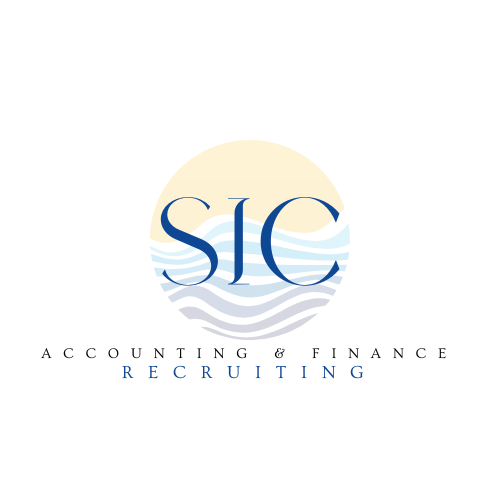From Gaps to Connections: How Recruitment Agencies Like Sea Isle City Recruiting Connect Job Applicants and Employers
expectations, a lack of understanding of industry-specific requirements, or limited job opportunities can cause this gap. These factors can hinder the hiring process for both parties. This is where recruitment agencies like Sea Isle City Recruiting step in to bridge this gap and facilitate successful matches, ensuring employers and candidates find what they’re looking for efficiently.
Recruitment agencies are crucial in connecting qualified candidates with suitable job openings. Acting as intermediaries, they understand employers’ and job applicants’ specific needs and requirements. By leveraging their expertise, resources, and networks, recruitment agencies can bridge the gap between the two, leading to a more streamlined and effective hiring process.
How Recruitment Agencies Can Close the Gap
Here are five ways recruitment agencies bridge the gap between job applicants and employers:
1. Targeted Talent Acquisition
Recruitment agencies specialize in identifying and attracting top talent within specific industries and job functions. They have access to a vast network of active and passive candidates and can tailor their search to match the exact requirements of employers. For example, agencies that focus on accounting and finance roles allow them to tap into a specialized pool of candidates with the specific skills and experience that employers in these fields require. This focused approach saves time for employers by quickly presenting qualified candidates, reducing the time to hire, and increasing the chances of finding a great match.
Example: Consider a healthcare organization looking for a financial analyst with experience in healthcare revenue cycle management. A general job board might yield thousands of irrelevant resumes. Still, a recruitment agency would use targeted searches to identify and reach out to candidates with the specific financial and industry background required.
2. Industry Expertise
With a deep understanding of industry trends, emerging roles, and evolving skill sets, recruitment agencies provide valuable insights to employers and job applicants. They can help employers identify the right talent for their organizations and guide applicants toward suitable career paths. This expertise enables recruitment agencies to offer more than just a match—they can advise on industry-standard compensation packages, in-demand skills, and future career prospects.
Example: An agency specializing in finance might note a rising demand for professionals skilled in financial technology (FinTech) and guide job seekers to pursue certifications or training in this area. Similarly, they might inform employers about competitive salary ranges to attract top talent, particularly in high-demand roles like data analytics or compliance.
3. Personalized Candidate Assessment
Recruitment agencies employ rigorous assessment processes to evaluate candidates’ skills, experience, and cultural fit. This ensures that only the most qualified individuals are presented to employers, saving time and resources for both parties. This can involve technical assessments, behavioral interviews, and cultural fit evaluations that go beyond just reading a resume.
Example: If a company needs a senior accountant with experience in mergers and acquisitions (M&A), the agency doesn’t just look for M&A keywords in a resume. Instead, they conduct interviews to assess the candidate’s direct experience with M&A, understanding of regulatory compliance, and ability to manage the complexities involved in such transactions.
4. Effective Candidate Representation
Recruitment agencies advocate for job applicants, presenting their skills and qualifications in the best possible light. They negotiate salary packages, provide career advice, and prepare candidates for interviews, increasing their chances of success. This representation is crucial for candidates who might undersell themselves or are unaware of how to negotiate with potential employers.
Example: A mid-level finance professional transitioning to a new sector might need to learn how to leverage their experience for a higher salary bracket. A recruitment agency can help the candidate articulate their transferable skills and negotiate a competitive salary, ensuring the employer and the candidate are satisfied.
5. Streamlined Hiring Process
Recruitment agencies streamline hiring by handling administrative tasks, scheduling interviews, and managing candidate communications. This allows employers to focus on other critical business activities while ensuring a smooth and efficient recruitment experience. Agencies often
use technology and AI tools to track candidates, automate parts of the hiring process, and provide timely updates to employers and candidates.
Example: An agency might use an applicant tracking system (ATS) to schedule interviews automatically, send reminders, collect feedback, and manage the back-and-forth communication between employers and candidates, significantly reducing the administrative burden on HR departments.
Sea Isle City Recruiting is a prime example of a recruitment agency that effectively bridges the gap between job applicants and employers. Specializing in accounting and finance roles across various industries, we connect top talent with rewarding opportunities that match their skill sets and career goals. Their personalized approach and commitment to quality ensure that clients and candidates have a positive experience, resulting in long-term relationships and repeat business.
In conclusion, recruitment agencies like us are vital in closing the gap between job applicants and employers. By leveraging their expertise, networks, and personalized approach, they facilitate successful matches, streamline the hiring process, and drive business growth. Partnering with a reputable recruitment agency is wise for job seekers looking to land their dream job and employers seeking the right talent.
Contact Sea Isle City Recruiting today to experience the difference that expertise and a personalized approach can make.


